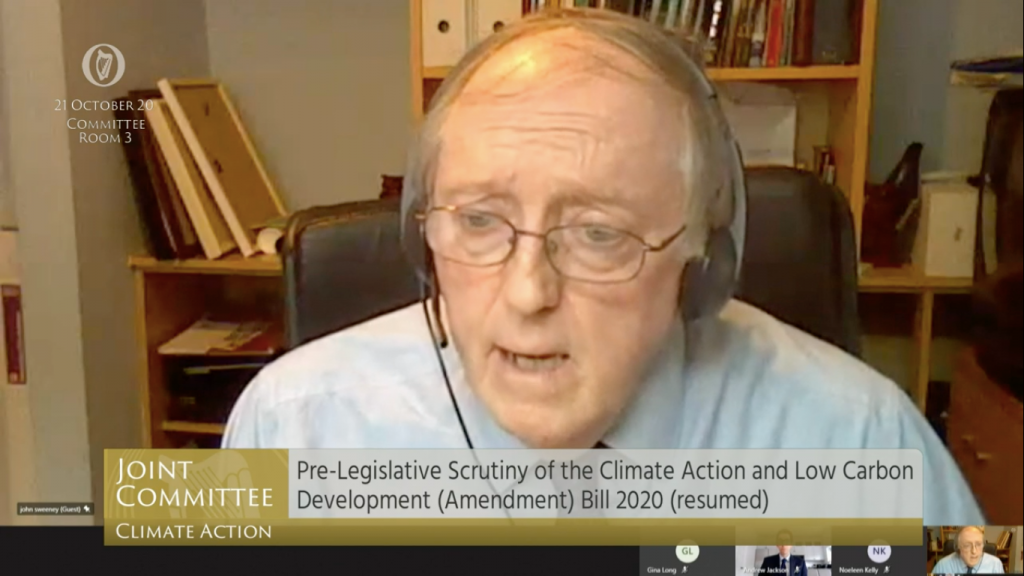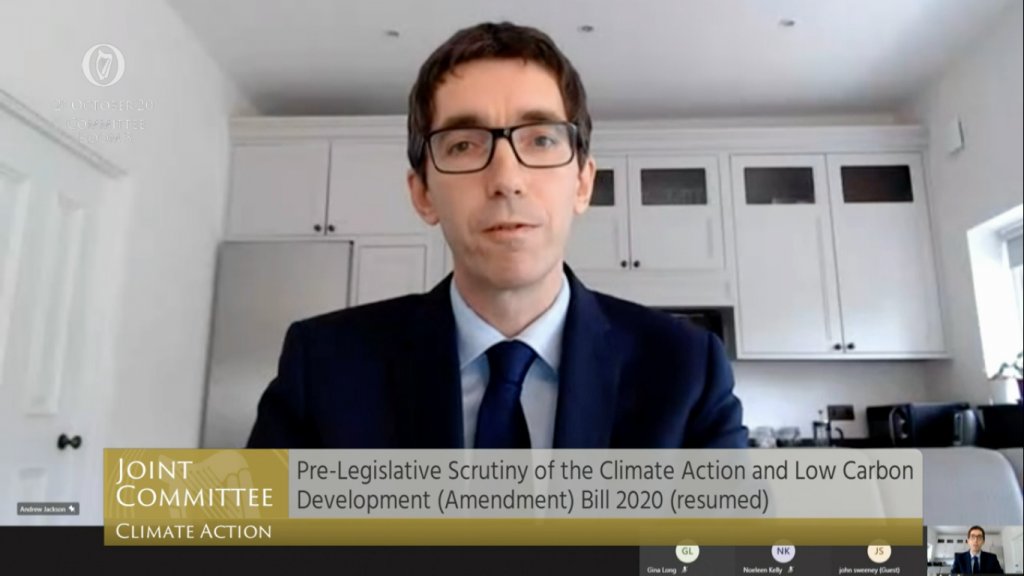Climate Bill lacks “sense of emergency”

21 October 2020
The recently published Climate Bill doesn’t have a “sense of emergency”, the Joint Oireachtas Committee on Climate Action heard today.
Dr. Andrew Jackson of UCD’s Sutherland School of Law, and who also instigated Climate Case Ireland, told Committee Members that he did not get a sense of emergency from Bill, despite the Dail declaring a climate and biodiversity emergency last year.
“We can really strengthen this Bill if we give instructions to drafting lawyers saying ‘I want you to emulate international best practice, I want a Bill that reflects the emergency of the situation we are in’,’” he said.
Dr. Jackson was joined by Professor John Sweeney, an Intergovernmental Panel on Climate Change (IPCC) scientist, in expressing concerns to the Committee on the Bill.
Professor Sweeney in his opening statement said that a specification was needed for the maximum and minimum ranges of decarbonisation targets would be “crucial” and that they must fall in line with an overall carbon budget.
Additionally, he added, the Bill has “no accountability for anything going wrong here” and suggested that sanctions should be issued if carbon budgets fail to be met.
Interim targets would allow the State to “check along the way” to see if remedial action is needed before the end of a five year budget, and “only then can we ensure that we’re back on track, or not back on track,” according to Prof Sweeney.
Both Dr Jackson and Prof Sweeney also expressed caution around proposed ex-officio members to the Council, which include the heads of the Environmental Protection Agency, Teagasc and Met Eireann.
A case could be made for these members to provide information to the Council, but if they were present on the Council as a right, Prof Sweeney advises against their representatives having voting rights.
“Ultimately they are paid by the public purse and they are individuals who are loath to criticize government policy.
Therefore they would be inhibited to adopting the same kind of approach that a more independent-minded Climate Change Advisory Council would like to adopt in certain circumstances,” he said.

Biodiversity and Just Transition
Senator Lynn Boylan of Sinn Fein and Jennifer Whitmore TD of the Social Democrats both raised the issue of biodiversity and how it can be protected through the Bill itself.
Dr Jackson recommended a number of pathways, including strengthening the language of the Bill to make sure the Sustainable Development Goals were taken into account in any future plan-making and for public bodies to encourage and promote nature based solutions that “enhance biodiversity”.

In regards to Just Transition and climate justice, Dr. Jackson said in his opening statement that their principles should be fully enshrined in the Bill.
Climate justice should be defined and made meaningful in the Bill, and could be done by the Government outlining how the principle has been taken into account in setting reviewing the net zero target date, carbon budgets, plans, and interim targets.
Dr Jackson contrasted the total absence of Just Transition to Scotland’s Climate Act, which “sets out Just Transition principles and requires the Scottish government to outline the extent of which it plans to take account of these principles and the Sustainable Development Goals”.
[x_author title=”About the Author”]







